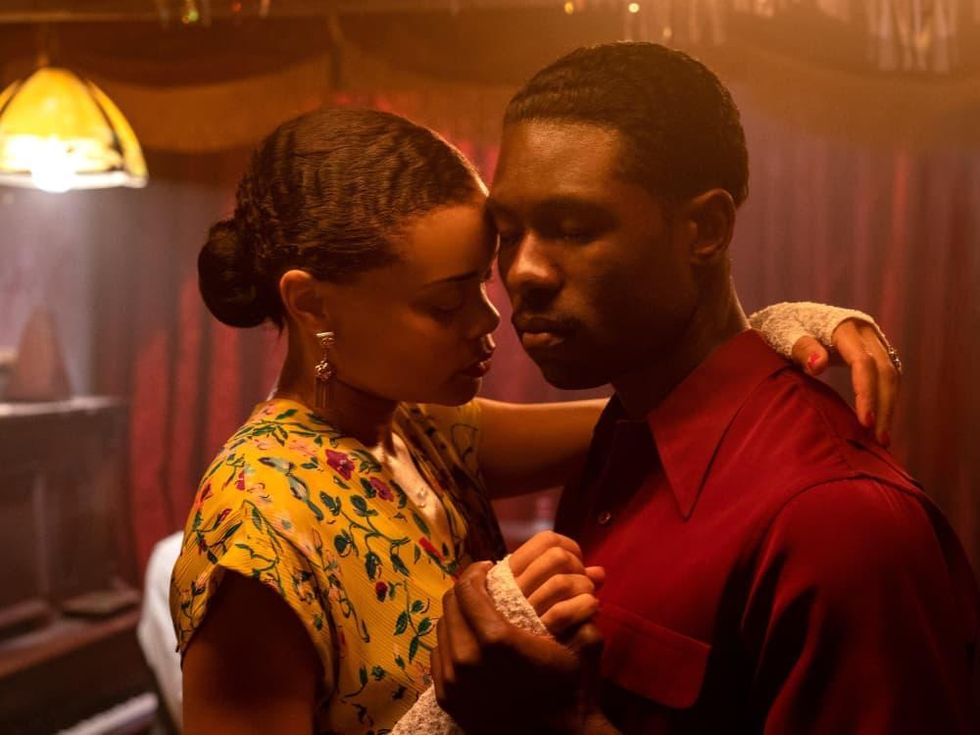Movie Review
Poor filmmaking undoes power of The United States vs. Billie Holiday
The current movie awards season has turned into a referendum about famous Black Americans being hounded by the authorities. Filmmakers have delved into the lives of Martin Luther King, Jr. in MLK/FBI, Black Panther Party leader Fred Hampton in Judas and the Black Messiah, and now singer Billie Holiday (played by Andra Day) in The United States vs. Billie Holiday.
While the film explores her life as a whole to a small degree, it mainly deals with how Holiday’s anti-lynching song, “Strange Fruit,” and her penchant for heroin combined into her running afoul of federal law enforcement, most notably the now-defunct Federal Bureau of Narcotics under Harry Anslinger (Garrett Hedlund). According to the film, the agency used a Black agent named Jimmy Fletcher (Trevante Rhodes) to keep tabs on Holiday, an assignment that led to him becoming closer with her than he expected.
Directed by Lee Daniels and adapted by Suzan-Lori Parks from the book by Johann Hari, the film is one of the stranger types of biopics you may see. For one, the filmmakers seem to assume that Holiday is still well-known enough now that they don’t need to do much to establish the level of fame she achieved in the early 20th century. But in so doing, they also skip creating any kind of empathy toward her that telling a broader story might.
They also hang their hat on how controversial “Strange Fruit” was, starting the film with text talking about the lack of an anti-lynching law in the U.S. at the time, but it’s not until 80 minutes into the two-hour film that viewers get to hear the song in its entirety. By that point, the film has meandered into so many different corners with no clear sense of direction or time that the song loses much of its impact.
Most egregious, however, is a lack of clarity on who all the characters in the film are and what they meant to Holiday. She has an assortment of assistants, hangers-on, and the like, but for the most part they’re just present without adding anything of substance to the story. The biggest bond in the film is between Holiday and the drugs that she just can’t quit, but they even bungle that relationship, never proving how tragic it was for someone with talent like hers to be taken down – willingly or not – by her addiction.
Daniels tries to employ a visual style that every now and then incorporates the look of old scratchy movies or newsreels, but because they pop up haphazardly and briefly, the technique has no purpose. If anything, they distract from any momentum the film has gathered, as do some fantasy sequences in the latter half that try to inject emotion well past when such sequences would have been effective.
Day, best known for her 2015 No. 1 song “Rise Up,” is hit and miss in her feature film debut. There’s a lot of power to her performance, especially when she’s singing, but she doesn’t have the nuance that the character required. She, along with others like Leslie Jordan, Miss Lawrence, and Da’Vine Joy Randolph, appear to have been given free rein to indulge in over-the-top acting, to the detriment of all. The only person who comes off well is Tyler James Williams, who’s come a long way from being the star of Everybody Hates Chris.
The United States vs. Billie Holiday is the latest example where an attempt to venerate a major Black figure was undone by poor filmmaking. Holiday’s story is a complicated one, and this film crumbles under the weight of trying to make sense of it all.
---
The United States vs. Billie Holiday will debut exclusively on Hulu on February 26.




